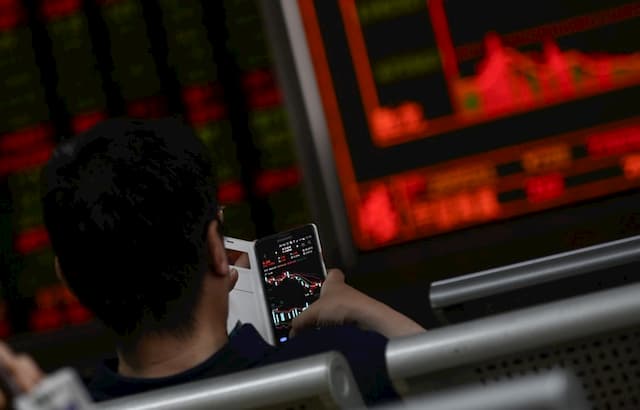China: Chinese Growth at a Record Low, a First for 27 Years

ECONOMY: Chinese growth slumped in the second quarter despite Beijing’s support efforts
At the height of trade tensions with Washington, China’s growth weakened over one year in the second quarter (+ 6.2%), marking its weakest performance for at least 27 years, despite Beijing’s support efforts.
This figure, in line with forecasts of a panel of experts surveyed last week by AFP, was announced Monday by the National Bureau of Statistics (SNB). This is the smallest increase in GDP since the publication of quarterly data in 1992, according to Bloomberg.
Uncertainties increase
“The economic environment is still complicated, both in China and abroad, global economic growth is slowing and external instabilities and uncertainties are increasing,” said National Bureau of Statistics (NBS) spokesman Mao Shengyong. US President Donald Trump, who continues to denounce China’s trade surplus vis-à-vis his country, last year imposed punitive tariffs on many Chinese products.
Washington decided in May to lift these tariff surcharges by 10 to 25 percent on 200 billion Chinese goods exported annually to the United States after the talks with Beijing failed. But Donald Trump and his Chinese counterpart Xi Jinping decreed at the end of June a truce in their trade war after a meeting in Osaka (Japan) at the G20 summit.
“Huge repercussions”
“The trade war is having a huge impact on the Chinese economy,” said analyst Edward Moya, an analyst with Oanda. “And as the negotiations are struggling to make significant progress, we are certainly still far from the trough of the wave for the Chinese economy,” he said.
Last week, Chinese and American negotiators resumed dialogue by phone without announcing next high-level meeting to try to break the deadlock. “The fact that an economic indicator is in line with expectations is still a huge relief,” says Stephen Innes, an analyst with investment firm Vanguard Markets.
To support the real economy, the Chinese government pledged in March to reduce by nearly 2,000 billion yuan (265 billion euros) the tax and social burden on businesses. Beijing also plays the equilibrists, trying to support companies that need credit, but without inflating their debt.
Solid sales
On Wednesday, Chinese Premier Li Keqiang called for stronger support for internationally-oriented companies and promised tax breaks when Beijing struggles with exports. Last month, China’s overseas sales fell 1.3% year-on-year after a rebound of 1.1% in May.
Exports, heavily penalized by the trade war, are one of the pillars of the Asian giant’s economy. This is why China is continuing to rebalance its economy, with a greater focus on domestic consumption. These encouraging figures suggest that “growth is stabilizing” in China, said Raymond Yeung.
Enjoyed this? Get the week’s top France stories
One email every Sunday. Unsubscribe anytime.


